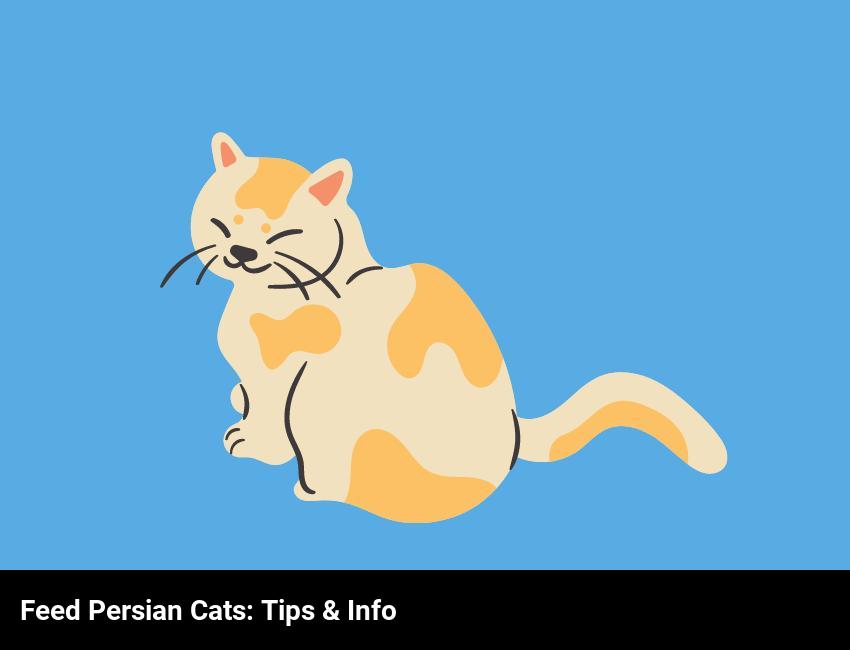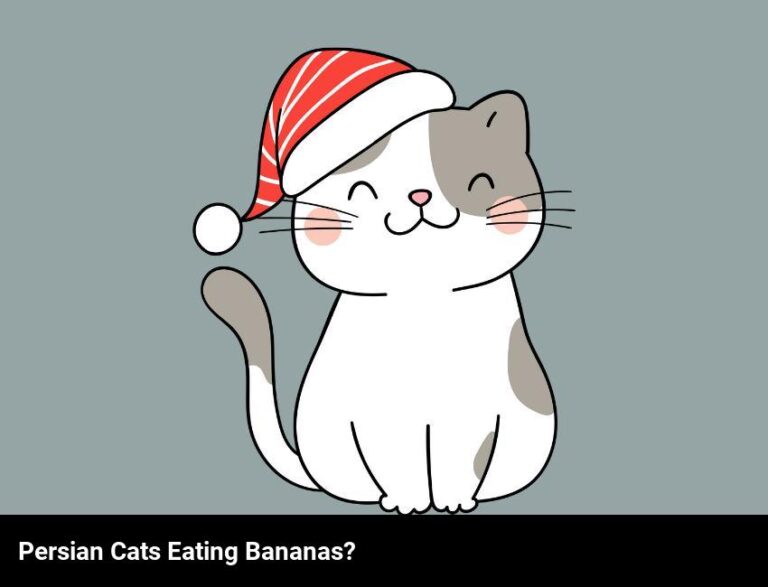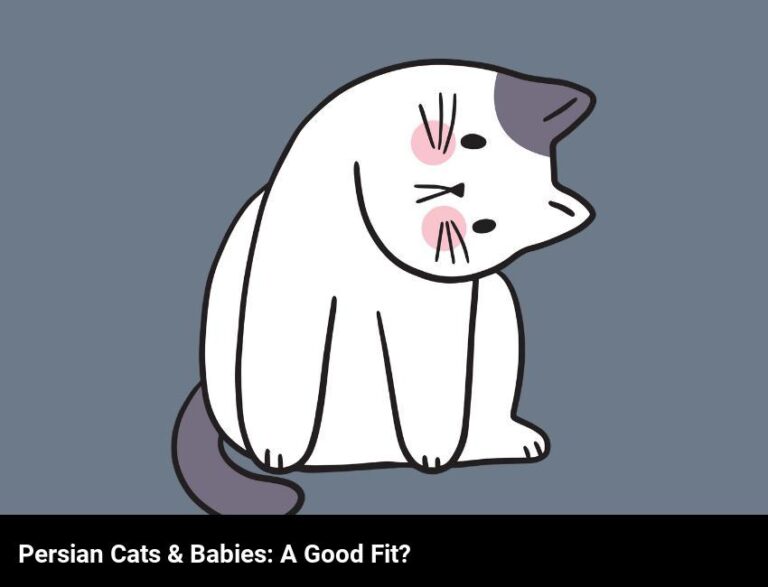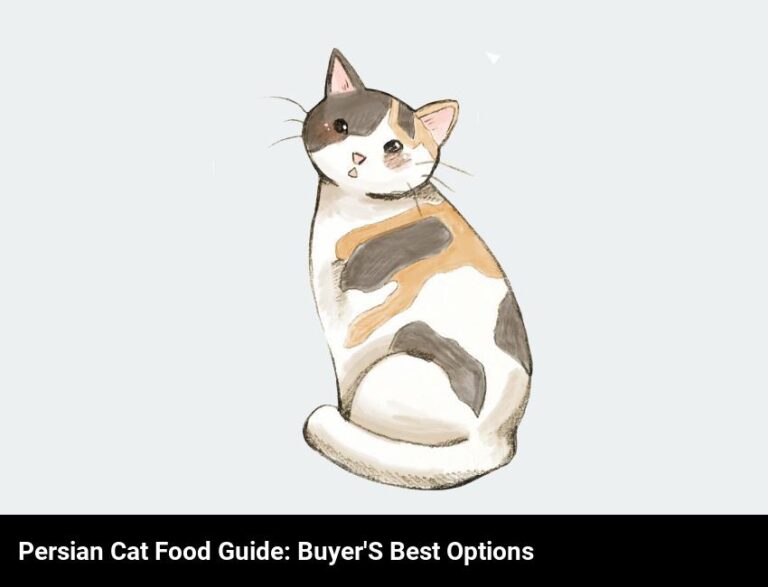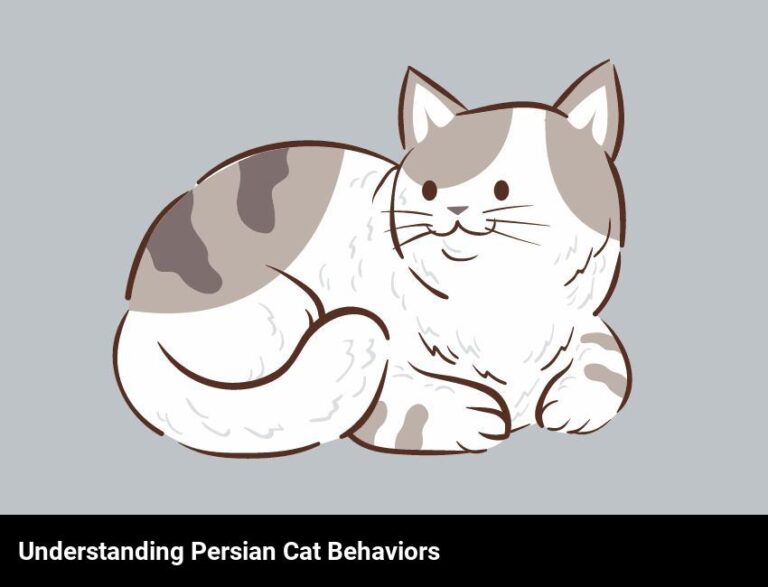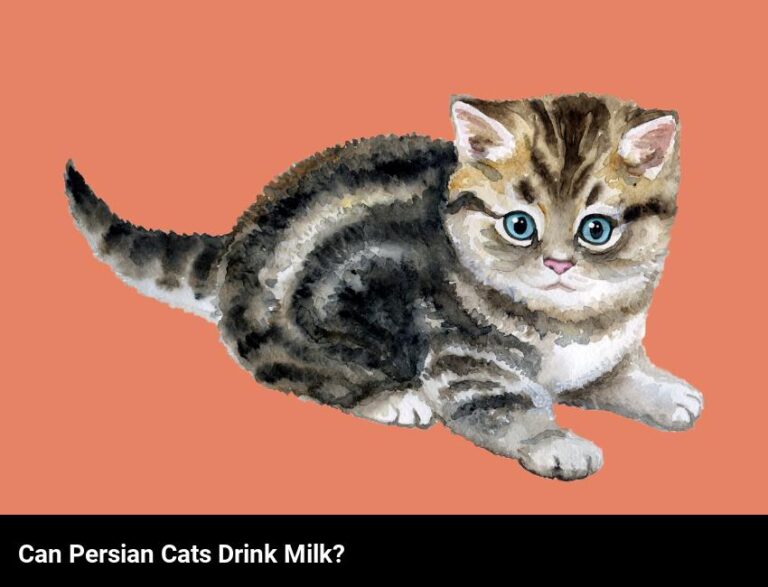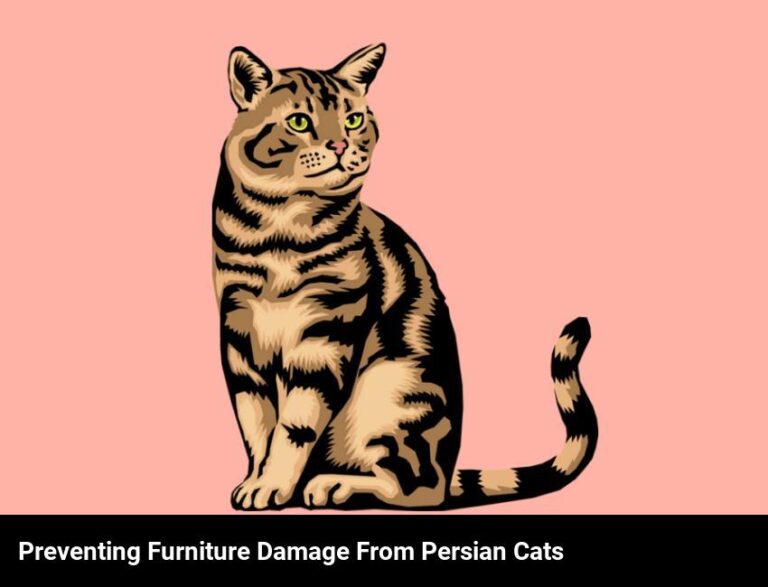Feeding Persian Cats: What You Need To Know
Persian cats need a high-quality diet that includes plenty of high-protein, low-fat, and fiber-rich foods. They should also receive regular grooming and nail trimming. Regular vet checkups and vaccinations are also important for your Persian’s health.
Having owned a Persian cat for the past 5 years, I can assure you that they are the most lovable, gentle, and beautiful cats around. As a Persian cat owner, it’s important to know that they have specific dietary needs that must be met in order to keep them healthy. In this blog, I’ll be sharing my personal experience as a Persian cat owner and provide tips and advice on what you need to know about feeding Persian cats.
I’ll cover topics such as the dietary needs of Persian cats, the types of food and treats that are safe for them, potential health benefits of feeding them the right food, and how to make meal times enjoyable for your Persian cat.
Whether you’re a new owner of a Persian cat or have been caring for one for years, this blog will provide valuable information for you to make sure your Persian cat is getting the best nutrition possible.
What are the dietary needs of persian cats?
If you’re a proud owner of a Persian cat, then you know it’s important to meet their dietary needs. Persian cats need a high-quality diet and plenty of clean, fresh water. Here’s an overview of what else to consider when feeding your Persian cat.
First, it’s important to feed your Persian cat a diet that is tailored to your cat’s age and activity level. Kittens and seniors require different nutrition than an adult cat. Kittens, for example, need high-quality kitten food for growth and development, while seniors need reduced calories and protein to maintain good health.
Second, you’ll want to look for a diet that contains plenty of essential fatty acids, like omega-3 and omega-6. These help keep your Persian cat’s skin and coat healthy and shiny. Also, look for a diet that contains high-quality animal proteins, like chicken, turkey, and fish.
Third, Persian cats need plenty of moisture in their diet. This helps them to get enough hydration, which is especially important in Persian cats since they have thicker fur than other cats. You can add moisture to their food in the form of wet food or canned food, or you can add some water to their kibble.
Finally, it’s important to give your Persian cat regular meals. Persian cats tend to be grazers and like to eat throughout the day, so you can spread out their meals into smaller portions to make sure they get enough nutrition.
Feeding your Persian cat a balanced diet that meets their nutritional needs is key to keeping them healthy and happy. With the right knowledge and effort, you can make sure your Persian cat has the right diet to stay happy and healthy.
What are the health benefits of feeding your persian cat healthy food?
Feeding your Persian cat healthy food comes with many health benefits! Here are just a few of them:
- Improved digestion: Healthy foods are easier for your cat to digest, helping them get the nutrients they need more efficiently.
- Improved energy: Healthy food can help your cat stay energized and active, allowing them to play, explore and enjoy life.
- Reduced risk of diseases: When your cat eats healthy, they’re less likely to develop common health problems, such as obesity, diabetes, and kidney disease.
- Improved coat and skin: Healthy food can help improve the condition of your cat’s coat and skin, so your cat looks and feels their best.
- Better overall health: Healthy food can help your Persian cat stay healthy and happy, by providing them with all the essential vitamins, minerals and nutrients they need.
Feeding your Persian cat healthy food can have a lasting positive impact on their life and well-being.
What are some tips for making meal times enjoyable for your persian cat?
Are you looking for ways to make meal times more enjoyable for your Persian cat? Here are some tips that could help:
- Give your cat variety. Try to incorporate different flavors and textures into their diet to make mealtimes more exciting.
- Offer a mix of wet and dry food. This combination is good for their teeth, as well as providing a tasty balance.
- Place the food bowl in an area your cat enjoys. Cats like to eat in a quiet and comfortable space, so find a spot that your cat feels safe and relaxed in.
- Offer interactive meal toys. Puzzle feeders or toys that contain cat treats can help to challenge your cat and make them work for their dinner.
- Schedule regular meal times. Establishing a routine with meal times can help to make eating more enjoyable for your cat.
- Let them be social. Cats are social animals, so if they’re comfortable having their dinner around other cats or people, let them have their dinner with company.
- Make meal times special. Try to make mealtimes special by giving your cat extra attention and love.
What kind of food should you feed your persian cat?
If you have a Persian cat, you may be wondering what kind of food your feline companion should be eating. The answer is simple: high-quality dry food specifically formulated for Persian cats. The ingredients in this kind of food are tailored to meet the nutritional needs of Persians.
The food should contain animal protein as its main ingredient, such as chicken, turkey, or fish. It should also contain fiber-rich carbohydrates to provide your cat with energy, as well as vitamins and minerals to keep them healthy.
When choosing a food for your Persian cat, look for one formulated with omega fatty acids. This will help to promote skin and coat health. Natural prebiotics can also be beneficial for digestive health.
It’s important to avoid foods with artificial colors, flavors, and preservatives. These can be toxic to cats and may even cause an allergic reaction. Also try to avoid foods that contain fillers like wheat, corn, and soy, as these can cause digestive issues.
Finally, remember that the nutrition needs of cats can vary depending on age, weight, and activity level. If your Persian cat is very active or has special dietary needs, you may need to consult your vet for advice.
Overall, be sure to feed your Persian cat high-quality dry food specifically formulated for their needs. This will help to keep them happy and healthy.
What kind of treats are safe for persian cats?
When it comes to Persian cats, you’ll want to make sure they have access to healthy treats. Fortunately, there are plenty of options that are safe and tasty for your furry friend. Some of the best treats for Persian cats include cooked chicken, tuna, and salmon. These offer a variety of nutrients, including omega-3 fatty acids, protein, and healthy fats.
You can also offer your Persian cat some cooked vegetables, such as squash, sweet potatoes, and carrots. These can be great sources of fiber and vitamins. Just make sure to chop or grate them into small pieces so they’re easier to eat.
In addition to cooked foods, you can also try offering some freeze-dried treats, such as freeze-dried liver or salmon. These are full of flavor and provide a great source of protein.
For something a bit sweeter, you can also try offering some healthy fruits, like apples, bananas, or oranges. Just make sure to remove the peel and seeds, as these can be a choking hazard for cats.
Finally, there are a variety of store-bought treats made specifically for cats. Look for treats that are made with natural ingredients and low in sugar and fat.
No matter what treats you choose, make sure you offer them in moderation and keep an eye on your Persian cat’s weight.
How can you tell if your persian cat is getting the right nutrition?
There are several signs that you can look out for to ensure your Persian cat is getting the right nutrition it needs. Firstly, your cat should have a healthy, glossy coat and plenty of energy. If your cat is looking lethargic or its coat is looking dull, then they may not be getting the right vitamins or minerals they need to stay healthy.
Next, check your cat’s weight. Your cat should be of a healthy weight and not too thin or too heavy. If your cat is too thin then it could be a sign that it’s not getting enough nutrients, whereas if it’s too heavy then it could be overeating.
You should also check your cat’s appetite. A healthy cat should have a good appetite and show enthusiasm for their food. If you notice that your cat is losing interest in their food, or isn’t eating as much as they usually do, then they may not be getting the right nutrition.
Finally, take a look at your cat’s stools. Healthy stools should be firm and brown in colour. If your cat’s stools are too loose, then this could be a sign that your cat is not getting the right nutrients it needs.
By keeping an eye on these signs, you can be sure that your Persian cat is getting the nutrition it needs.
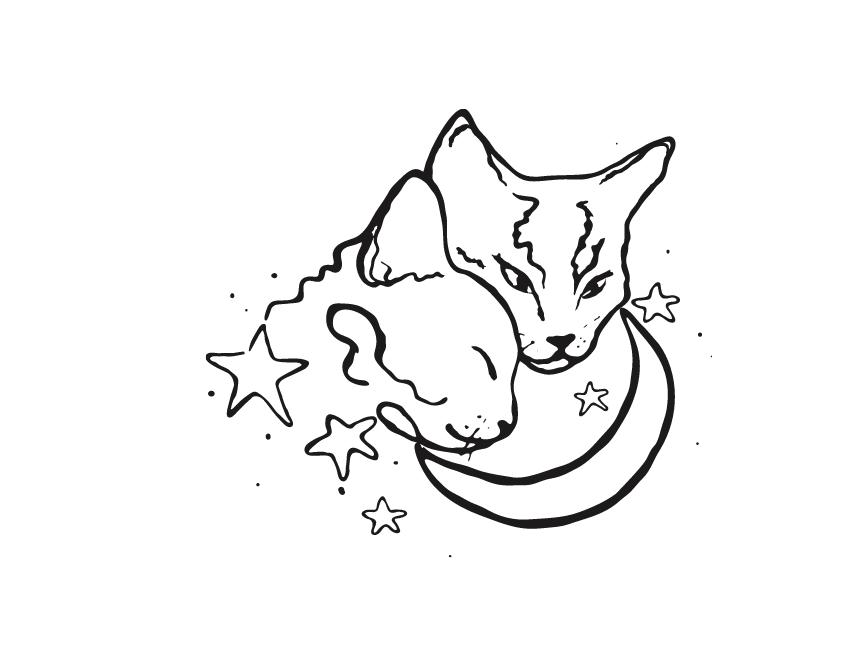
Frequently Asked Questions
What types of food should persian cats be eating?
Persian cats should be fed high-quality, nutritionally balanced wet and dry food specially formulated for cats. A diet of wet food, like canned or pouch food, is especially important as it helps cats stay hydrated and is easier to digest. Dry food should be limited to prevent overeating and dental problems. Avoid foods high in carbohydrates and fats, such as grains, as these can lead to health issues.
What are some tips for creating a nutritious meal plan for my persian cat?
When creating a nutritious meal plan for your Persian cat, there are a few important tips to keep in mind. First, make sure to offer a variety of wet and dry foods. You should also focus on high-quality proteins while limiting carbohydrates. Additionally, it’s important to feed your cat multiple small meals a day and to avoid overfeeding. Lastly, make sure to provide plenty of fresh water to keep your cat hydrated.
What are the signs of an unhealthy diet in persian cats?
Signs of an unhealthy diet in Persian cats can include weight loss, lethargy, poor coat condition, vomiting, and poor appetite. If you notice any of these signs in your cat, consult your vet right away.
Are there any supplements that are beneficial for persian cats?
Yes, there are several supplements that can be beneficial for Persian cats. Fish oil, probiotics, and vitamin E are all supplements that can help to improve the overall health and wellness of your Persian cat. Additionally, a daily multivitamin can provide the essential vitamins and minerals that your cat needs to stay healthy. Talk to your vet to decide which supplements are best for your cat.

